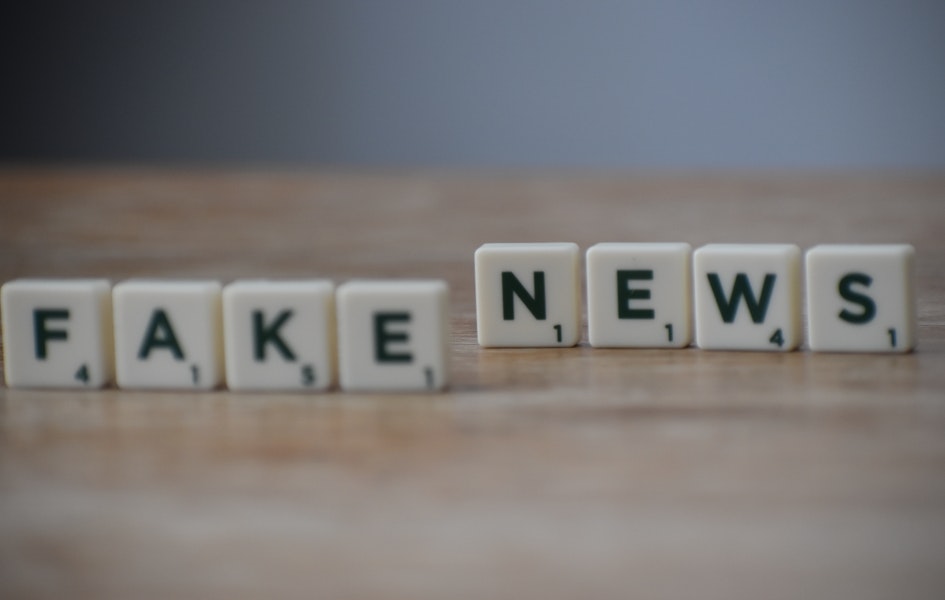Immediate access to information can sometimes be a dangerous thing. What's the first thing we do when we have a question regarding health these days? A quick google search. It might not sound like a great idea, but that's the reality of the matter. Although this new age reality might seem inescapable, if you can't change the game, play the game.
The abundance of health-related misinformation online
Not everyone is qualified enough to give their health-related opinions on the internet, but they still do. A simple look-through of the google search results will tell you that.
It leads to people believing untrue things. For example, did you know that there is a misconception online that eating apricot seeds will cure cancer? There is no scientific evidence to back that. Moreover, eating apricot seeds can even cause cyanide poisoning!
This “era of fake news”, in which misinformation, generated intentionally or unintentionally, spreads rapidly, poses considerable problems in the health arena.
The practice of medical misinformation is not new, but access to phones has brought about a quantum change. There's a herd of people craving attention online, and accurate scientific information can easily get crowded out by sensationalized news. Most of us don't go past the 2nd page of google search results and believe the information present on the first two to be true! It's quite literally, a battle out there.
To add to it all, social media platforms have become an even easier way to spread medical misinformation. Anyone sitting in any part of the world can write down a post or share a 30-sec video to share health information with no scientific research to back them up. The fake news then spreads like a wildfire, riding on psychological ideas like confirmation bias, wherein people's views on factual matters are strongly influenced by prior beliefs.
Although social media platforms provide enormous opportunities for people to engage with one another in beneficial ways, they also allow misinformation to flourish. These online platforms enable communities of denialists to thrive in the absence of filtering or fact-checking.
The situation has only continued to grow in the last two years, with the advent of Covid-19. There's so much debate and so many varied opinions that it becomes difficult to decide who to listen to for the truth. As we continue to witness, the accumulation of individual beliefs in untrue stories, conspiracy theories, and pseudoscience can coalesce into societal movements, such as the anti-vaccination movement, with grave public health implications.
But how can a healthcare professional fight all the health misinformation spread online? Is it even possible? Let us dissect it further.
But how can a doctor help fight the misinformation online?
According to Poland and Spier, a "too little, too late" response from public health authorities, corrective information filled with scientific jargon and low-quality content, and a lack of reasoning by both the press and the public result in a retreat from evidence-based medicine and a step toward media and celebrity-based medicine.
The paper does not say that the blame is on the healthcare institutions alone, and we all have our parts to play to decrease the likelihood of such crises. So, how do we collectively solve this problem?
We get our information from a variety of sources. Health and wellness information is gleaned from health care professionals, family and friends, books, newspapers, magazines, educational pamphlets, radio, television, and pharmaceutical advertisements. But, in recent times, we have started to venture online more and more for our answers than other avenues.
Collaboration is key
One of the ways to solve online health information is to embrace it! The internet can be a powerful tool when people collaborate with their doctors. According to a meta-analysis, online information seeking has the potential to assist patients in becoming more actively involved in decision making, preparing for their doctor's visit, improving communication, and improving the patient-doctor relationship. An extremely busy doctor can only be assisted by a patient eager to learn about their health condition.
Verified credentials, better quality
It is easy to fake yourself as a doctor on the internet. A person can forge their medical degree or buy one online. As there is no way to verify those degrees, a layperson simply believes what they see. Developing online platforms hosted by colleges that allow easy verification of earned credentials could solve this problem. Additionally, health apps may demand the creator's credentials, such as university connections or previous training, as well as the literature or data that backs up their claims.
Some people may still trust unverified sources, but that number would be significantly lower.
Convey accurate information
Researchers have found that 34% of academic studies and 48% of media articles use language too strong for the strength of their causal inference. Even when high-quality research is produced, health communicators must be cautious not to exaggerate the causal relationship between an intervention and a health outcome.
Most qualitative research is behind closed doors and not accessible to the general public. It would bring about a great change if scientists start posting on open-access journals more and get more involved on social media.
What other ways can you think of to fight the presence of medical misinformation online? Join My Medical Panel and let our global community of healthcare professionals know!










